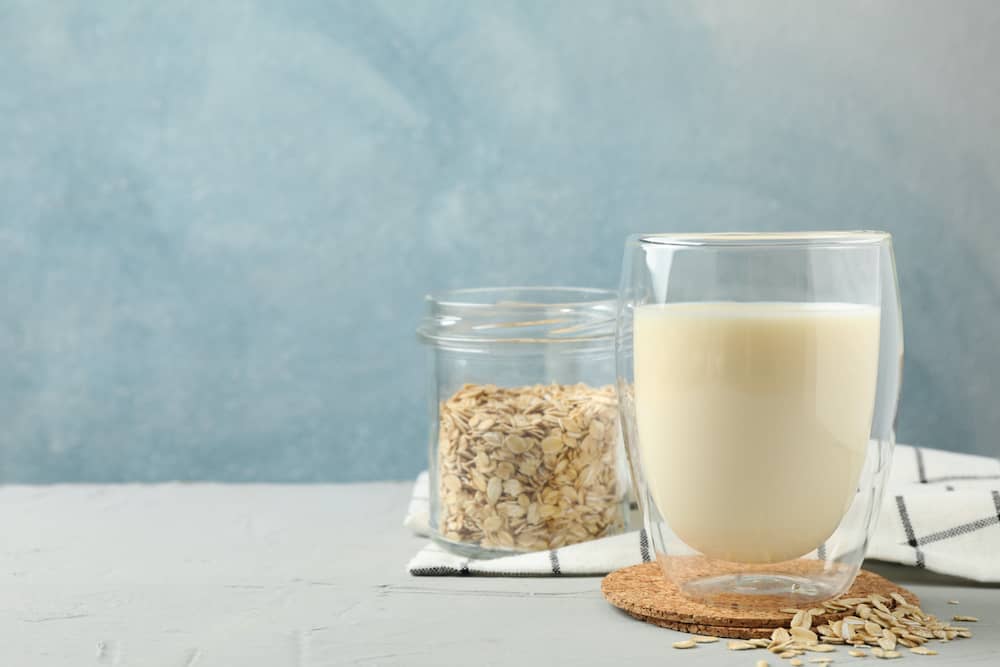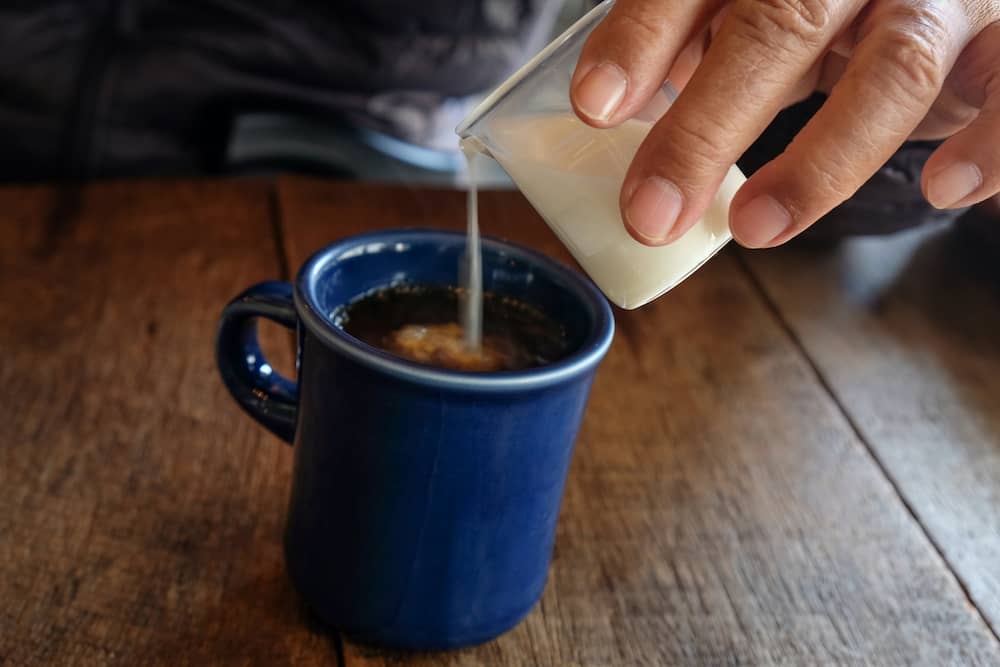You might be wondering about oat milk because you've seen it on the shelves of your local supermarket or the menu of your favourite coffee shop. Or perhaps you have a dairy or lactose intolerance or follow a vegan diet, and are looking for something to use instead of dairy milk?
Either way, read on to discover the facts about oat milk, including what it is, if it’s good for you and who it's suitable for.
What is oat milk?
Oat milk is a drink made from oats and water, and sometimes other ingredients. The oats and water are blended, then strained to remove the oats. The liquid that’s left is oat milk.
As it’s a plant-based drink, it’s naturally dairy-free and vegan-friendly.

Oat milk nutrition
So, is oat milk good for you? Well, like other alternatives to dairy milk, it’s low in fat.
However, it doesn’t contain all of the natural nutrients that dairy milk (or whole oats) can provide. That’s why shop-bought oat milk often has several vitamins and minerals added to it, including:
- calcium – for strong bones and teeth
- vitamin D – for healthy bones, teeth and muscles
- vitamin B12 – for getting energy from food
Some types of oat milk contain added sugar, so it’s a good idea to check the label and try to find an unsweetened variety.
Oat milk benefits
You may have heard that oats contain a special type of fibre called ‘beta glucan’. It's thought that beta glucan can help keep your cholesterol levels healthy if you consume 3g a day as part of a balanced diet.
The good news is that oat milk also contains beta glucan. A 250ml glass typically contains about 1g of beta glucan – while a bowl of porridge made with 40g of oats contains 2g.
Oat milk often also contains added calcium and vitamin D. A lack of calcium may lead to a condition called osteoporosis, which weakens bones and makes them more fragile and easier to break. Vitamin D is also important for healthy bones because it helps your body absorb calcium from your food.
Oat milk with added calcium and vitamin D can be an important source of these nutrients if you don’t eat dairy products.
Is oat milk gluten-free and is it safe?
Oats are naturally gluten-free. However, they are often processed in the same places as grains that do contain gluten, such as wheat or rye, so they can become contaminated.
Don’t assume that your oats or oat milk are gluten-free – always check the label, especially if you have coeliac disease or a food intolerance.
Oat milk is safe for most people. It’s not recommended for children under the age of 1, but you can give unsweetened, calcium-fortified oat milk from the age of 1 as part of a balanced diet.
If you think your child has a milk allergy or intolerance, ask your doctor or health provider for advice about suitable alternatives.
How to use oat milk
As well as being dairy-free and vegan-friendly, oat milk is easy to use and tasty to drink. It’s often described as having a neutral, almost dairy-like flavour and a creamy texture.
Because of this, oat milk is often used in drinks such as coffee and with breakfast cereal. You can also find many smoothie and baking recipes that use oat milk.

Key points
- oat milk is a drink made from oats and water
- it’s naturally dairy-free and vegan-friendly
- it often has vitamins and minerals added, such as calcium and vitamin D
- not all oat milk is gluten-free, so check the label
- it’s a versatile and easy-to-use ingredient



